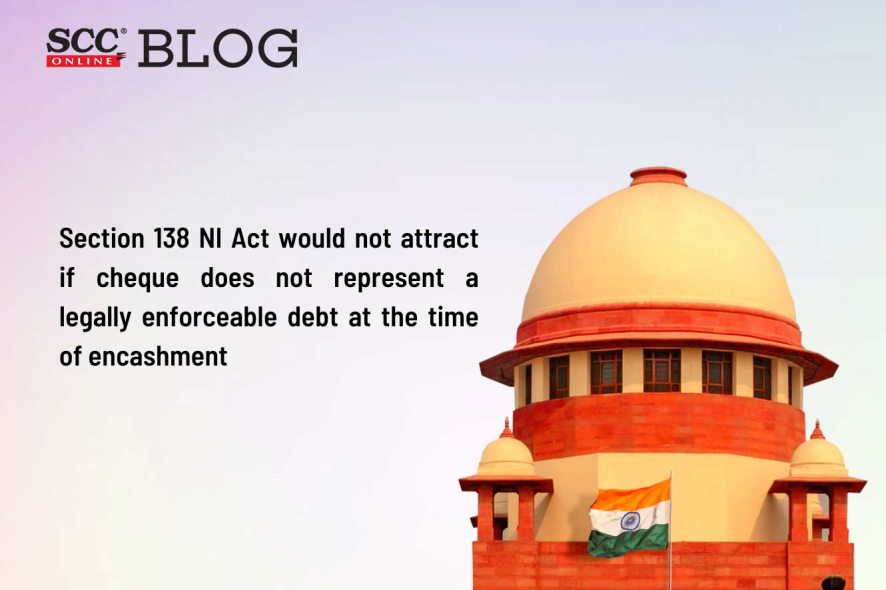Supreme Court: In the case where the Supreme Court was called upon to decide whether the offence under Section 138 of the Negotiable Instruments Act 1881 would deem to be committed if the cheque that is dishonoured does not represent the enforceable debt at the time of encashment, the bench of Dr. DY Chandrachud* and Hima Kohli, JJ has held that for the commission of an offence under Section 138, the cheque that is dishonoured must represent a legally enforceable debt on the date of maturity or presentation.
The Court has further explained that if the drawer of the cheque pays a part or whole of the sum between the period when the cheque is drawn and when it is encashed upon maturity, then the legally enforceable debt on the date of maturity would not be the sum represented on the cheque.
When a part or whole of the sum represented on the cheque is paid by the drawer of the cheque, it must be endorsed on the cheque as prescribed in Section 56 of the Act. The cheque endorsed with the payment made may be used to negotiate the balance, if any. If the cheque that is endorsed is dishonoured when it is sought to be encashed upon maturity, then the offence under Section 138 will stand attracted.
Under Section 56 read with Section 15 of the Act, an endorsement may be made by recording the part-payment of the debt in the cheque or in a note appended to the cheque. When such an endorsement is made, the instrument could still be used to negotiate the balance amount. If the endorsed cheque when presented for encashment of the balance amount is dishonoured, then the drawee can take recourse to the provisions of Section 138. Thus, when a part- payment of the debt is made after the cheque was drawn but before the cheque is encashed, such payment must be endorsed on the cheque under Section 56 of the Act. The cheque cannot be presented for encashment without recording the part payment. If the unendorsed cheque is dishonoured on presentation, the offence under Section 138 would not be attracted since the cheque does not represent a legally enforceable debt at the time of encashment.
The Court was deciding the case where the respondent had made part-payments after the debt was incurred and before the cheque was encashed upon maturity. The sum of rupees twenty lakhs represented on the cheque was not the ‘legally enforceable debt’ on the date of maturity. Thus, it was held that the respondent cannot be deemed to have committed an offence under Section 138 of the Act when the cheque was dishonoured for insufficient funds.
[Dashrathbhai Trikambhai Patel v. Hitesh Mahendrabhai Patel, 2022 SCC OnLine SC 1376, decided on 11.10.2022]
*Judgment by: Justice Dr DY Chandrachud
For appellant: Advocate Mehmood Umar Faruqui
For Respondent: Senior Advocate Nakul Dewan


